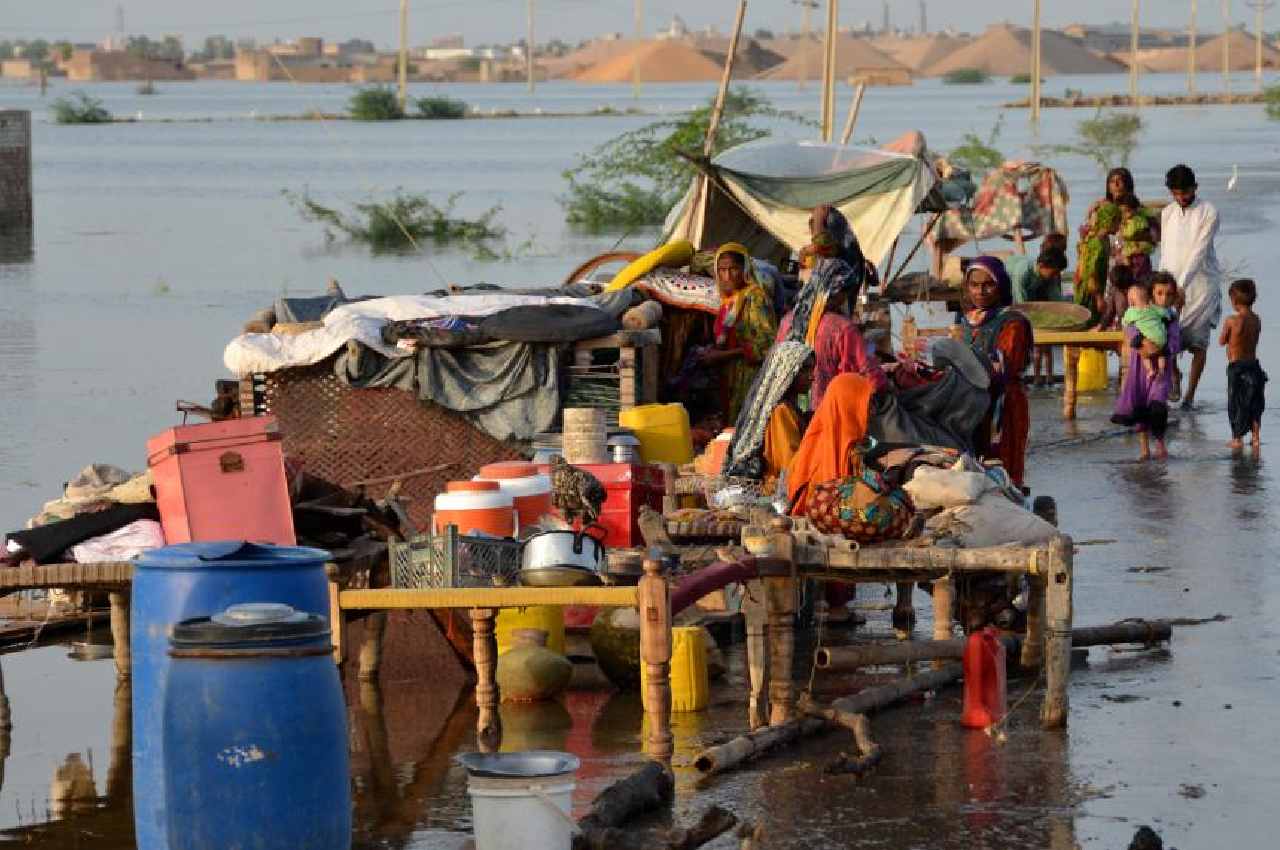New Delhi: As Pakistan struggles to deal with the impact of the unprecedented floods, the country’s Finance Minister Miftah Ismail said the flash floods have inflicted a loss of at least USD 10 billion on different sectors of its economy.
While speaking with the media, Miftah said these were the initial assessments that might escalate after conducting surveys on the ground, The News International newspaper reported.
The minister said he did not have the details of the losses faced by each sector of the economy at the moment.
Also Read :- Disturbing! Husband burns pregnant wife alive after she refuses abortion
Pakistan Prime Minister Shehbaz Sharif has called a multi-party meeting on Monday to mull over the future course of action with regard to devastations caused by floods and heavy rainfall.
Local media said Chief ministers of all provinces have been invited to the meeting. Pakistan Minister for Information and Broadcasting Marriyum Aurangzeb said that important decisions are expected to be taken at the meeting.
As unprecedented rains have caused devastating floods across the country, Pakistan is set to launch the UN ‘Flash Appeal’ for flood victims.
Over 5.7 million people have been affected in Pakistan as the country faces the worst rain-induced flooding in its history, according to The News.
Last week, the Shahbaz Sharif government officially declared a “national emergency” after rains and flood-related incidents killed over 900 and left at least 30 million without shelter.
“It is a moment of great challenge and adversity for Pakistan, as unprecedented rains and floods have caused massive devastation in various parts of the country, especially in Sindh and Balochistan,” the Pakistan Foreign Office (FO) Spokesperson Asim Iftikhar said on Friday as he confirmed that the UN was going to launch an international appeal for aid to help people affected by flooding.
Also Read :- THIS is the hidden agenda behind India’s diplomatic vote against Russia
“Around 33 million people have been affected. Close to a thousand lives have been lost. Rescue and relief operations are facing difficulties due to washed away infrastructure,” Asim was quoted as saying by The Express Tribune newspaper.
The humanitarian situation in Pakistan has deteriorated further over the past two weeks as heavy rains continue to cause flooding, and landslides resulting in displacement and damage across the country, according to the UN Office for the Coordination of Humanitarian Affairs (OCHA).
Sixty-six districts have been officially declared to be ‘calamity hit’ by the Government of Pakistan – 31 in Balochistan, 23 in Sindh, nine in Khyber Pakhtunkhwa (KP) and three in Punjab. The situation remains dynamic, and many more districts have been affected; the number of calamity-declared districts is expected to rise as rains continue to fall.
The adverse weather conditions have incurred significant human and livestock casualties and widespread damage to private homes and public infrastructure, especially in Balochistan and Sindh provinces.
The National Disaster Management Authority (NDMA) reports some 33 million people in Pakistan are being affected.
“As of August 25, Pakistan has experienced 375.4 mm of rainfall – 2.87 times higher than the national 30-year average of 130.8 mm. These rains have primarily fallen on Balochistan, Sindh and parts of Punjab, with Balochistan receiving five times its average 30-year rainfall and Sindh receiving 5.7 times its 30-year average,” the OCHA said.
Also Read :- Disturbing! Husband burns pregnant wife alive after she refuses abortion
Over 218,000 houses have been destroyed and a further 452,000 damaged since 14 June, according to the NDMA. Livelihoods are also being heavily impacted – more than 793,900 livestock – a critical source of sustenance and livelihoods for many families – have died, of which some 63 per cent are in Balochistan and 25 per cent in Punjab.
Around 2 million acres of crops and orchards have also been impacted, including at least 304,000 acres in Balochistan, 178,000 acres in Punjab and some 1.54 million acres in Sindh.
Damage to infrastructure has further worsened the humanitarian situation, as partial or complete destruction of over 3,000 km of roads and 145 bridges impedes the ability of people to flee to safer areas or to travel to access markets, healthcare, or other vital services, and restricts the delivery of aid to people in need.
(This story has not been updated by News 24 staff and has been published via syndicated feed)
Read More :- Latest World News
Click Here – Download The News 24 App













